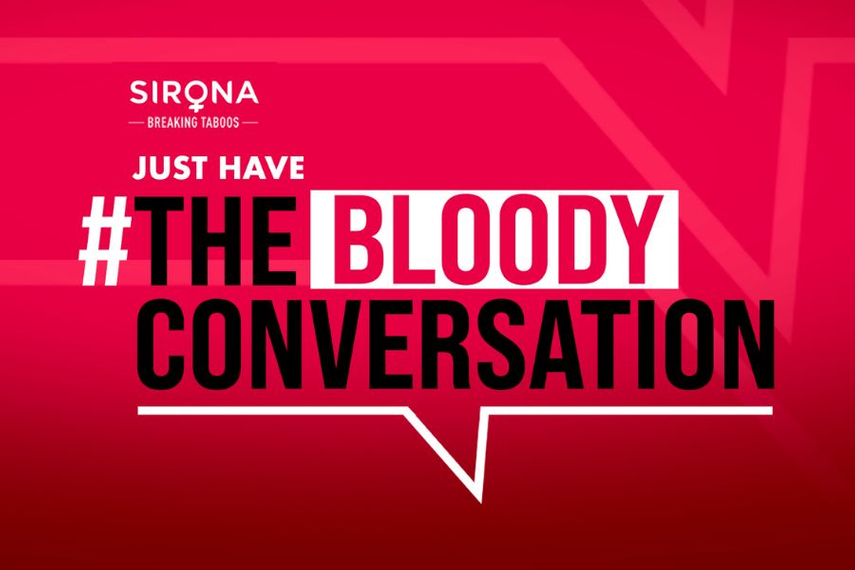
Sirona Hygiene, a brand specialising in menstrual hygiene products from The Good Glamm Group’s portfolio, has launched the #TheBloodyConversation campaign to initiate more conversations around menstruation. This initiative aims to dismantle the taboos, ignorance and stigma surrounding periods, particularly among men, and insists on the necessity of open, unfiltered dialogue.
In line with its commitment to drive change, Sirona encourages consumers to have the 'bloody conversation' on Menstrual Hygiene Day, which falls on 28 May. The campaign video sheds light on the lack of awareness amongst men when it comes to periods, emphasising the importance of uncluttered and comfortable conversations about menstrual health.
As part of an experiment, men in the video are equipped with a simulator device that replicates period pain each time they answer a period-related question incorrectly. With this campaign, Sirona wants to emphasise that by such conversations can promote a more informed, empathetic, and equitable society where menstrual health is understood and supported.
"At Sirona, we refuse to tiptoe around the subject of menstruation," asserts Anika Wadhera, head of marketing, Sirona Hygiene, Good Glamm Group. "Our #TheBloodyConversation campaign challenges societal norms that perpetuate silence and misinformation. By compelling everyone to engage openly and honestly, we are driving towards a future where menstrual health is universally understood, respected, and supported."
According to recent research, the menstrual hygiene market has experienced substantial growth, registering a compound annual growth rate (CAGR) of 6.3% from 2019 to 2023. Over the past two years, there has been a significant shift in the conversation surrounding menstrual hygiene, marked by a remarkable 25% increase in online searches related to menstrual health and hygiene.
Campaign's take: #TheBloodyConversation is designed to provoke thought and action, demanding for change. It underscores the critical importance of normalising period discussions, ensuring that everyone—regardless of gender—has the knowledge and resources needed to manage menstrual health with dignity and respect. Efforts such as these contribute to a more informed, empathetic, and equitable society—dismantling the taboos surrounding menstruation and fostering an environment where conversations about menstrual health are as commonplace and accepted as any other health discussion.


.jpg&h=334&w=500&q=100&v=20250320&c=1)
.jpg&h=334&w=500&q=100&v=20250320&c=1)
.jpg&h=334&w=500&q=100&v=20250320&c=1)




.png&h=334&w=500&q=100&v=20250320&c=1)








.png&h=268&w=401&q=100&v=20250320&c=1)
